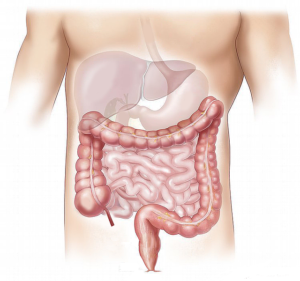Chamomile

As an herb, chamomile or Matricaria recutita has a long history of use as a digestive aid, for healing topical skin conditions, for treating pain and muscle spasms and to help reduce anxiety (Srivastava 2011). The herb belongs to the daisy family with characteristic flowers, having white petals and a yellow center.
Like a lot of classic herbal remedies, modern research is starting to support the potential benefits of chamomile. Clinical studies suggest chamomile may help treat:
- Anxiety and insomnia
- Menstrual pain and excessive bleeding
- Gastrointestinal conditions
- Oral mucositis
Chamomile and Anxiety
The first placebo controlled trial of chamomile for generalized anxiety disorder was completed in 2009. The study found a clinically significant reduction in anxiety symptoms over the sixty day trial with chamomile supplementation (Amsterdam 2009). A similar study that used increasing doses of chamomile when needed, also found benefits for treating generalized anxiety disorder (Ross 2013).
A larger study, including 179 moderate to severely anxious patients, found chamomile to be efficacious. The clinical response was comparable to standard drug trials with no serious adverse events (Keefe 2016). The study was continued longer-term and found that chamomile continued to reduce symptoms better than placebo, although relapse rates were only non-significantly lower in chamomile treated patients (Mao 2016).
Insomnia
Herbs that help with anxiety often help with insomnia. While the first small study on chamomile for insomnia showed mostly non-significant or mixed results (Zick 2011), two more recent trials suggest possible benefits. In postpartum women with insomnia, chamomile tea was shown to improve short-term sleep parameters, although the results appeared to fade by week four (Chang 2016). A trial in elderly individuals found that chamomile extract taken twice daily was effective for improving sleep quality (Adib 2017).
Chamomile and Menstrual Pain
Chamomile also has a place in the treatment of menstrual cramping, pain and excessive bleeding. A total of seven clinical trials have evaluated the use of chamomile for menstrual symptoms with a recent systematic review concluding that “chamomile can be considered as an effective treatment for primary dysmenorrhea (menstrual pain and cramping) and reducing menstrual bleeding (Niazi 2021).”
To be effective, chamomile doesn’t need to be taken continuously. Most studies used chamomile just prior to or at the start of menses. Treatment is then discontinued after menstruation ceases. One study found pain reductions of 75% with chamomile treatment (Modarres 2011).
Chamomile and Gastrointestinal Conditions
Historically, chamomile was often recommended for digestive complaints. The herb is antispasmodic and antimicrobial, both of which may play a role in treating digestive concerns.
Diarrhea In Children
Two studies in children with non-specific diarrheal complaints utilized an apple-pectin, chamomile combination product as treatment. Both studies found improvements in symptoms with the herbal treatment (Becker 2006, Motte 1997).
Irritable Bowel Syndrome
Irritable bowel syndrome (IBS) is a gastrointestinal condition that involves abdominal pain related to the passage of stool. A non-placebo-controlled study out of Iran gave 45 patients with IBS chamomile tincture for four weeks. The treatment improved all symptom measures with benefits holding for two additional weeks after treatment ceased (Agah 2015). Additional placebo-controlled studies would be useful to verify benefits for IBS treatment.
Chamomile and Oral Mucositis

As a topical agent, chamomile extracts and essential oil have been used to help decrease inflammation and promote wound healing.
Surprisingly, one of the best studied applications for chamomile is for oral mucositis. Oral mucositis is inflammation, swelling and sores inside the mouth and on the gums. It is a common side effect of cancer therapies, including chemotherapy and radiation treatment. Studies using a mouth rinse that includes chamomile extract have shown decreased mucositis and improved healing with its use (Eubank 2021).
Allergies to Chamomile
Chamomile is typically quite safe as an herb when used properly. However, since chamomile is in the same botanical family as ragweed and mugwort, both common allergens, those with ragweed or mugwort allergies should approach chamomile with caution. A small percentage of those with ragweed or mugwort allergies may have an allergic reaction to chamomile (Subiza 1989).
Conclusion
Chamomile is an herb with a number of potential uses. Some of the latest human studies suggest significant benefits for anxiety, menstrual symptoms, gastrointestinal problems and oral mucositis. Like a lot of other common herbs, research is continuing to verify and validate a number of historical herbal treatments.



